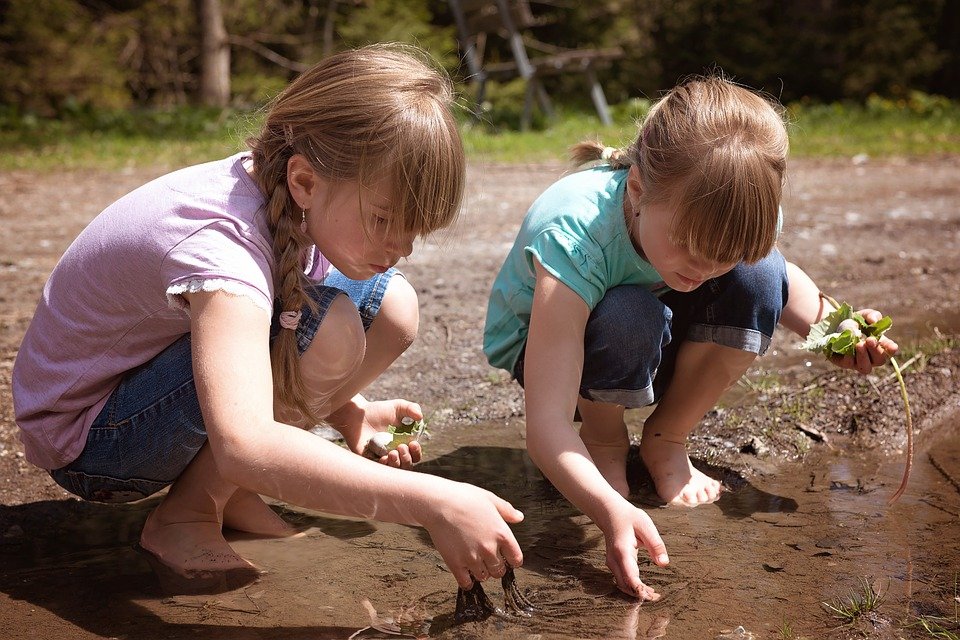I've been promising a post on the basics of unschooling. As I started to map it out, I realized it's going to be several posts. I know I have written about it before, but it's been a while, and I hope those of you who've been around will learn something new while I share with my friends who've just joined the party.
The whole point of unschooling is to completely deconstruct what is happening in modern education. It seeks to question the very premise of the education system and indeed the entire cultural understanding of how children learn. I've been digging into this topic for twenty years now. I've learned by reading. I've learned by watching. And of course I've learned by totally screwing up.

To me the core idea that must be questioned is that of teaching. It's in our nature to think we are really clever, and we are. I know I'm certainly quite clever. We want to pass that on, and we are just certain that our kids need us, or some other qualified individual, to teach them. And of course they do need people to show them how things work and answer questions, but they don't really need to be taught. That may sound presumptuous or simply ridiculous, but stay with me.
They don't need to be taught because they are born with an absolutely unquenchable thirst for learning. They start trying to hold that tiny little head up the day after they're born. They've hardly recovered from what we can only imagine is an absolutely insanely bizarre and stressful journey. Apparently the first breath is excruciatingly painful. And almost immediately they start learning. You couldn't stop that drive to learn if you wanted to.

I want to say I understand some environments are more conducive to learning than others, and that drive - even that early on - can certainly be muffled, but it takes quite a while and a lot of effort to totally obliterate it. The fact that some kids are burned out and say they hate learning by 7 or 8 is a testament to the absolutely disastrous state of the modern educational system because the truth is, if you don't kill that drive, it remains very strong all through life. Hopefully, one day we will realize the importance of a devoted person who is closely related to each child being compensated to stay with that child full time for at least several years. Imagine the brilliance that would be seen in our world if each child had a truly loving and nurturing environment for at least 3-5 years. Anyway. I digress.
Children don't need to be taught because they want to learn!
They want to learn things that are hard and things that are easy. They are willing to learn things they don't like at all in order to get to a bigger goal. Yes, I'm sure.
The funny thing about how children learn is that psychologists are really clear. The research is really clear. And yet modern education digs in their heels in this undying loyalty to the exact opposite of what works. More tests, more hours, more inside, less play, more sit still and be quiet, less questions, more do what you're told. It's almost like they have an entirely different goal than education. Children need to play, explore, question, figure things out. In the process of gaining deeper and deeper levels of understanding about how all this works, I realized the absolute freaking brilliance of the scientific method. It's actually an incredibly accurate description of how we all learn.
The modern education system is stuck in a perpetual loop of step two. If they do go through all the steps, it's rarely the questions of the children. When anyone learns anything by following all of these steps, it is seared in their brain. That's real learning. They must experiment. They must have time to observe. They must question. They must make their own guesses. They must fail. They must try again and again. Play is often this process over and over and over again. Play is how every animal on the planet learns how to "adult." Humans are no different. The dismissal of unstructured play as pointless or even harmful is actually incredibly destructive to the survival of our species. It is the base of all learning.

There's a lot of reading in this realm. I highly recommend anything from Peter Gray. There have been a number of articles in Psychology Today by him and others about play, resilience, and how children learn. There have also been a lot of good articles in Yes! Magazine. The Sudbury Valley School has an extensive library on their website as well as a ton of essays and articles written by their brilliant staff on play, how children learn, and the state of the modern education system. Peter Gray's son is a graduate of, and staff member at, Sudbury Valley.
In future parts of the unschooling series, I will talk in depth about freedom, trust, responsibility, space, and exposure. I hope you will share your thoughts. I honestly believe that changing the lives of children is the most revolutionary thing we can do. There is no work that is more important, and there is nothing that will change the world faster and more permanently than changing how children are raised. For that reason, my mission in this world is to assist parents through the paradigm shift.
Pics are from Pixabay unless otherwise sourced
I am a passenger on the #ecotrain! For more posts from beautiful people making a difference in the world, please check out @ecotrain.
I am also a member of #teamgirlpower! For more awesome posts about empowering women and other marginalized groups, check out @teamgirlpower.

